Black Britons express little optimism justice will come
By Starla Muhammad -Staff Writer- | Last updated: Dec 6, 2011 - 9:31:23 PMWhat's your opinion on this article?
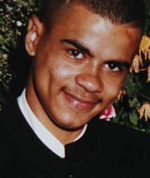
Mark Duggan
|
Police brutality, systematic “stop and search” tactics by law enforcement and disproportionate numbers of Blacks in prison are a few items on a long list of battles being waged to ensure fairness for the masses of Black people in the UK. Relations between the Black community and the police are strained, views of the justice system are tepid at best and there is little optimism among Blacks that things will change anytime soon.
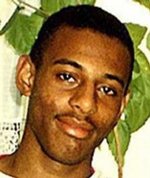
Stephen Lawrence
|
The numbers of Blacks that have died while in police custody is still a huge concern here, she said. “Black people are disproportionately killed in police custody. Also that applies to mental health; Black people with mental health problems are disproportionately represented,” added Ms. Pear, a writer for The Voice, a UK-based Black newspaper.
“If they’re (Blacks) detained under the mental health act, it’s a disproportionate number. That means the police suspect there’s something wrong with them and rather than taking them to a hospital they often get held in police stations and a lot of deaths have resulted in that,” said Ms. Pear.
According to thiscantbehappening.net, in citing statistics from Inquest, an independent non-governmental group that monitors police abuse, 35 “Black minority ethnic persons died in the custody of police in London between 2006-2009.”
UK government figures also show a disproportionate number of Black deaths following contact with the police, according to afrospear.com, an online blog and think tank. In cases where Blacks were killed by police or died while in police custody, officers are rarely if ever charged with crimes, activists note.
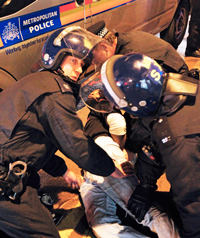
Metropolitan Police offi cers detain a suspected rioter in Enfi eld, North London,
Britain, August 9, during the fourth day of violence in which police clashed with
rioters in several United Kingdom cities. Violence erupted in reaction to a fatal
shooting incident in Tottenham, in which a policeman was injured on August 4
and a local 29-year-old man named as Mark Duggan was killed by armed officers.
Photo: EPA/KERIM OKTEN
|
“With the deaths of Reggae icon Smiley Culture, Kingsley Burrell-Brown and Demetre Fraser still at the forefront of the community’s consciousness, the issue of deaths in custody is now increasingly being viewed as an issue of national concern.”
“We make up such a small percentage of the population yet we’re vastly overrepresented in the prison system so obviously something’s going wrong somewhere,” argued Ms. Pear.
A 2007 report released by the House of Commons, Home Affairs committee noted “Young black people represented fewer than 3% of all 10–17 year olds but constitute 6% of those within the youth justice system—a figure which has remained constant for the past five years.”
The report also said that Black Britons were three times more likely than Whites to be arrested, six times more likely to be stopped and searched by police and are over five times more likely to be the victim of a violent crime.
Mark Duggan, 29 was shot and killed by police in London’s Tottenham area Aug. 4. Initial reports were that Mr. Duggan fired on police first but a review by the Independent Police Complaints Commission (IPCC) found no evidence the father of four had a gun in his hand when he was shot.
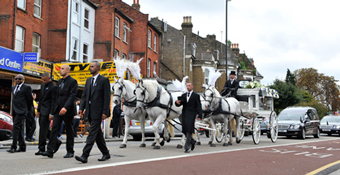
The funeral cortege of Mark Duggan makes its way toward the New Testament Church of God in north London, Britain, September 9. Hundreds of mourners gathered
for the funeral of Mr. Duggan who was killed by armed police that sparked riots across London and other cities in England in the worst unrest for decades in August.
Duggan, a 29-year-old father of four children, was travelling in a taxi on the day he was killed, which was apparently stopped by a police unit investigating armed crime
in the Black community. Photo: EPA/ANDY RAIN
|
“The IPCC has broken its own guidelines by giving out erroneous information to journalists regarding the ‘shoot-out’ involving Duggan and police that didn’t actually happen. And its investigation is flawed and in all probability tainted—so much so that we can never have faith in its final report,” wrote activist Stafford Scott in a commentary titled, “The investigation of Mark Duggan’s death is tainted. I want no part in it.”
In the Guardian online article, Mr. Scott says he was an independent, unpaid adviser to Operation Trident, the Metropolitan police’s specialist unit on gun crime in the Black community and that he helped to set up the Black Independent Advisory Group and chaired the group for two years.
Mr. Scott is one of two members of a group organized by the IPCC to increase community faith and confidence in the investigation into the shooting who have resigned.
“The IPCC … people aren’t really happy with what they are doing. People don’t trust them. They don’t think that they are independent enough so that’s a big problem now. People are calling for that to be reformed. So yes, a lot of work needs to be done,” said Ms. Pear.
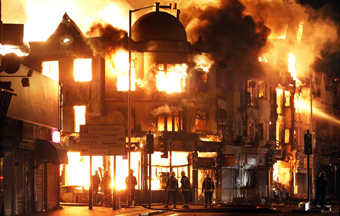
In this Aug. 9 fi le photo, a property is on fi re near Reeves Corner in Croydon, south London, as a wave of violence and looting
raged across London and spread to three other major British cities as authorities struggled to contain the country’s worst
unrest since race riots set the capital ablaze in the 1980s.
|
The British government just finally apologized to the family of Christopher Adler who died in police custody in 1998. The apology came after his case was reported to the European Court of Human Rights.
Mr. Adler was allegedly seen choking to death while in handcuffs in custody at a police station while officers stood around and did nothing. Officers were cleared of all charges.
“Closed-circuit TV footage was recovered showing the 37-year-old father-of-two gasping for air as officers chatted and joked around him. The film showed he received no help from five police officers, who thought he was play acting, as he lost his fight for life. It took 11 minutes for him to stop breathing. Afterwards, as Alder lay dead, monkey-like noises were detected on the audio tape,” reported The Guardian Nov. 21.
Adding insult to injury Mr. Adler’s body had actually been left in a mortuary for 11 years though his family believed they had buried him, The Guardian added.
“Racism is still alive and the way it’s dealt with is just a slap on the wrist to the perpetrator as opposed to a stand up and take note of what has just taken place here,” Hilary Muhammad, UK representative of the Nation of Islam and the Honorable Minister Louis Farrakhan told The Final Call. The undertone of racism has always been very prevalent in the UK, he added.
“The British are masters of masking such hatred for the Black man and woman. They’re masters at shrouding that element of their character, the vehement hatred that they have for our people,” said the Muslim student minister.
By many accounts, the trial of the White men accused of killing Stephen Lawrence will provide a sign about Black chances for justice. Shock, anger and sadness are just as fresh today as they were the day the horrific 1993 crime happened, said activists.
Mr. Lawrence, 19, was waiting at a bus stop when he was attacked and stabbed in the chest and arm. He was able to run only a few yards before he collapsed and died. Five White teenagers were arrested but never convicted. Two of the suspects, David Norris and Gary Dobson, are currently on trial for the murder based on new forensic evidence.
A 1999 inquiry into the Metropolitan police investigation culminated into what is commonly known as The McPherson Report, which found several aspects of the case were not only mishandled but also found a racist element within the police department.
“One of the most scathing criticisms of the report centered on the way the teenager’s family was treated insensitively and unsympathetically by police officers, who withheld information and were not prepared to accept that Stephen’s murder was racist,” says a 2009 article in The Guardian.
An interview with Stephen’s mother revealed many contact her to complain that yesterday’s mistakes are the same mistakes being made today.
“Even though the inquiry following Stephen Lawrence’s death found that the police were institutionally racist a lot of people feel like there hasn’t been that much progress,” said Ms. Pear. Ms. Pear was unable to comment on specifics of the trial as The Voice is actively monitoring and reporting on it as events unfold.
“I think the police sort of feel like they’ve made leaps and bounds. I don’t think they consider themselves a racist organization at all so I think that conversation is kind of closed. There are a lot of community steering groups, community people working with the police in an advisory capacity and they’ve had a lot of success so there is some engagement. But ‘I feel there’s not enough,’ that’s what people think,” said Ms. Pear.
Will the cries for justice Blacks have been fighting for in the UK ever be heard and answered? “That’s just not going to happen. So it’s just important for us to recognize the injustice of this society and unite with one another and take responsibility for protecting ourselves, protecting our community, that’s our responsibility,” said Mr. Muhammad.
INSIDE STORIES AND REVIEWS
-
-
About Harriett ... and the Negro Hollywood Road Show
By Rabiah Muhammad, Guest Columnist » Full Story -
Skepticism greets Jay-Z, NFL talk of inspiring change
By Bryan 18X Crawford and Richard B. Muhammad The Final Call Newspaper @TheFinalCall » Full Story -
The painful problem of Black girls and suicide
By Charlene Muhammad -National Correspondent- » Full Story -
Exploitation of Innocence - Report: Perceptions, policies hurting Black girls
By Charlene Muhammad -National Correspondent- » Full Story -
Big Ballin: Big ideas fuel a father’s Big Baller Brand and brash business sense
By Bryan Crawford -Contributing Writer- » Full Story






 Click Here Stay Connected!
Click Here Stay Connected!








